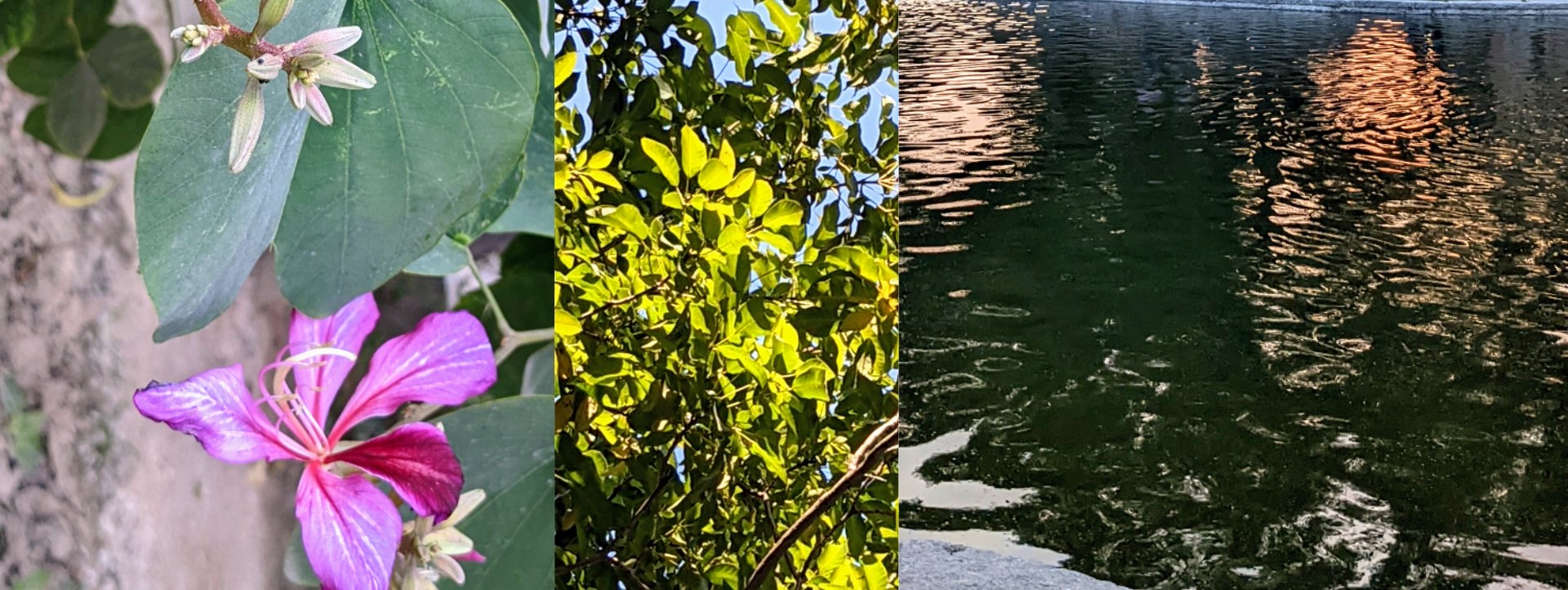
Sweet Nothings : A Musing on Love and Longing
We are all seekers. Something pulls us into life… to keep at it…despite its harshness. We long for specific things and people all our lives but our longings are hardly limited to a specific thing or person. Our longings expand beyond a specific need or a specific person and contain deep imprints of who we are and what infuses life in us.
Some people invest their lives in this quest for ‘something’ – something they don’t know about but feel compelled to engage with – an uncertainty, a nothing, a void, a chasm. Poets and psychoanalysts and sages, philosophers, and artists and even scientists are driven by this love for the unknown.
But most of all, the lovers. The lovers grapple and struggle and suffer this ‘nothing’ so much, incarnating and directing it towards an other – the beloved. No wonder, most cultures represent love as some sort of illness or madness that one gets struck by! Full of questions! Why don’t they love me? Why do they love ‘me’! ? Do they love me? Intrigued and enamoured and plagued by this not knowing… but driven and passionate precisely because of it.
Ghalib’s famous ghazal remains so relevant across time and captures so many subtleties of our desire –
हज़ारों ख़्वाहिशें ऐसी कि हर ख़्वाहिश पे दम निकले
बहुत निकले मिरे अरमान लेकिन फिर भी कम निकले
डरे क्यूँ मेरा क़ातिल क्या रहेगा उस की गर्दन पर
वो ख़ूँ जो चश्म-ए-तर से उम्र भर यूँदम-ब-दम निकले
निकलना ख़ुल्द से आदम का सुनते आए हैं लेकिन
बहुत बे-आबरू हो कर तिरे कूचे से हम निकले
(link to the full ghazal and translation https://www.rekhta.org/ghazals/hazaaron-khvaahishen-aisii-ki-har-khvaahish-pe-dam-nikle-mirza-ghalib-ghazals)
Haven’t we all been lovers? When the spells break, in the road ahead in our lives we also come closer to our quests as familiar but not quite directed at an other. We recognise something in our quests as parts of our own self – carved out of our many longings and desperate actions in life around a pull for something unknown – a nothing, a lack. “What was I longing for all the while that I was in quest for someone or something desperately?” is a question worth asking in life.
We may not know and find the answer precisely (and that’s not the most important part) but the asking of the question is very very important because it leads to looking at ourselves askance (obliquely). And some things cannot be glanced at directly but only obliquely to get a flavour of it.
Artists many times squint at the subject they want to paint, so that they can get a ‘broad stokes’ idea of the picture. To not get lost in the details and concreteness , but to be able to read a pattern, an essence.
To look at our essence we need to ask “What do you long for?” “What was that gaping ‘nothingness’, an empty void that you were looking to find the right fit for?” Something of your own self gets carved out in that process. The words we speak through our mouth as well as through our bodies (language and actions) when allowed that askance space of looking convey much more about who we are than any concrete description we build as an answer. Those ‘sweet nothings’ that we uttered to our lovers, the longing distant nostalgic eyes gazing into empty space while the mind swayed like waves of moments of connect and disconnect. Indeed, ‘sweet’ and ‘nothing’ but definitely ‘something’. Something we try to name all our lives and yet no name is enough for describing our longing, our desire.
Because psychoanalysis is a discipline which engages with the unconscious aspects of our mind, it allows the space for all the ‘nothings’ and all the ‘non sense’. Not only since time immemorial but also since the history of psychoanalysis, the question that was persistent was ‘why we act irrationally or in ways that make no rational sense?’. ‘How come we are not the master of our own consciousness?’ ‘What unknown logic is at the base of our compelling actions and feelings?’ Like the lovers, the psychoanalysts as well as their psychoanalysands (or patients) really suffer these questions and also bear them. They meet weekly, sometimes twice or thrice or four times a week to sit together (or for the patient to lie on the couch) and enter into that distant space through free-association (speaking freely, letting the mind wander, not in search of anything specific but illuminating nonetheless along the way important ways of our own being).
The presence of someone is very important as an orienting force for our free speech giving way to our own subjectivity. The presence of a listener creates a space for us to make an attempt to put into words what we never found words for. The words we utter to someone are also meant for our own ears, but can only reach our ears back when we speak them to someone. Sweet Nothings.
Anyone (including ourselves) who tries to concretise our longings and desires, anyone who tells us that we must speak only in a specific way, or offers us a guarantee to fill our lacks and longings, and anyone who says words only mean one thing, is a killer of subjectivity, a killer of our desire and being and our soul. Our lack is precious. Because while trying to speak into it we discover new words and names for ourselves. Our lack sustains our desire and our desire has no specific aim but nonetheless is vital to bring our ‘self’, our subjectivity to life.
An abusive lover or an abusive system or government or parent can really kill dreams by fixing meaning. To assign only a specific way of speaking and being is the death of love and our being. To assign a limited and specific aim to our desire is a violation of our being.
-Ananya Kushwaha
